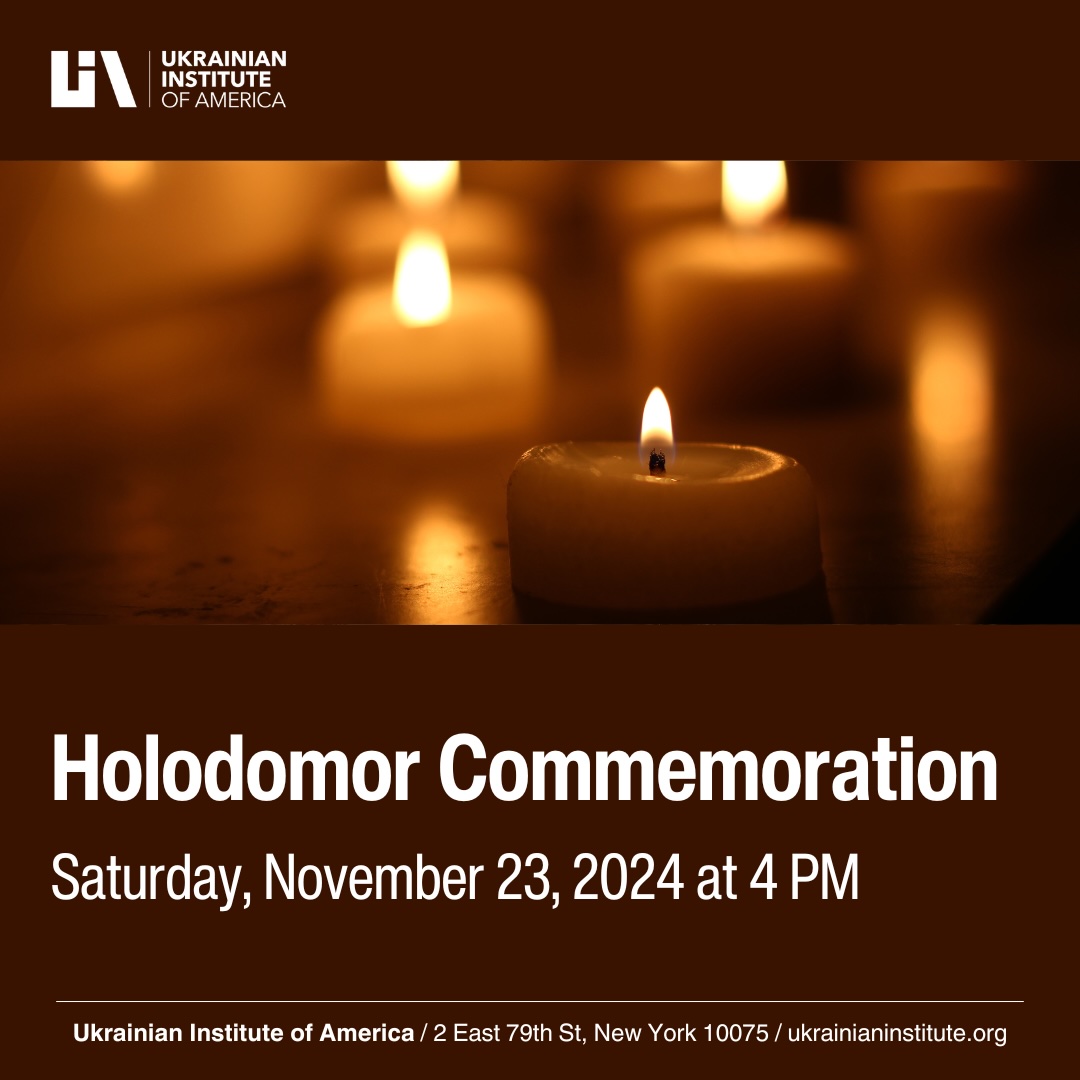
- This event has passed.
Holodomor Commemoration
November 23, 2024 @ 4:00 pm - 8:00 pm

The fourth Saturday of November is the day we commemorate the Holodomor, the man-made famine that claimed millions of Ukrainian lives in 1932-1933. On November 23, our community will assemble at St. Patrick’s Cathedral in New York City for a solemn service. Later that afternoon, the Ukrainian Institute of America will host a gathering to continue this day of remembrance. In the context of the ongoing aggression against the citizens of Ukraine, we invite you to join us for a conversation and the screening of two films that delve into the genocide inflicted on the Ukrainian people and the enduring trauma it has left for generations.
4 PM – Screening of documentary film Holodomor: Minnesota Memories of Genocide in Ukraine, with introductory remarks by writer and director, Zina Poletz Gutmanis.
5 PM – Reception
6 PM – Screening of Mr. Jones, with introductory remarks by writer and producer Andrea Chalupa.
Join us in remembrance of the lives lost and the commemoration of the lasting traumatic legacy of this dark period in the history of Ukraine.
REGISTER
About the Films:
Holodomor: Minnesota Memories of Genocide in Ukraine (2024 | 30 min) explores how traumatic memory is passed down through families, communities, and generations. The film shares personal family stories about the Holodomor while also highlighting the local community’s ongoing efforts to confront this genocide, even as Ukrainians today face renewed threats to their existence. Writer and director, Zina Poletz Gutmanis, will introduce the film and discuss her investigation of how the memory of collective trauma is transmitted…or concealed.
Mr. Jones (2020 | 1 hr 59 min) tells the story of Welsh journalist Gareth Jones, who, in the early 1930s, exposed Ukraine’s devastating famine to the Western world. Based on real events, the film follows Jones on his journey into the Soviet Union, where he uncovers an international cover-up and witnesses the horrors of a man-made famine. Despite constant threats from Soviet agents determined to silence him, Jones brings to light the catastrophic impact of Stalin’s forced agricultural collectivization—a policy that led to mass suffering and death.